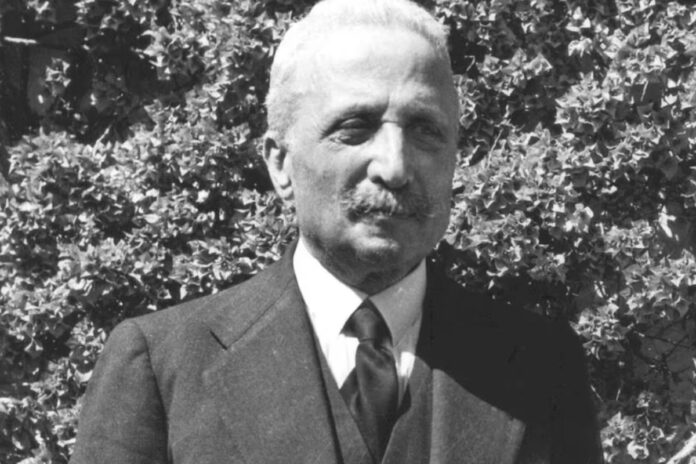Enrico De Nicola, (9 November 1877 – 1 October 1959) was an Italian jurist, journalist, politician, and statesman. He served as the provisional head of state of republican Italy from 1946 to 1948. On 1 January 1948, he became the first president of the Italian Republic, a position he held until his death.
Enrico De Nicola played a pivotal role in Italy’s history as the country’s first President. This article delves into his life, achievements, and enduring legacy.
Introduction
Enrico De Nicola might not be a household name for everyone, but his contributions to Italy’s post-war transformation are undeniable. As the first President of the Italian Republic, he helped steer the nation through some of its most turbulent times. This article explores his journey, his influence on Italy’s democratic system, and how his leadership shaped the country during a critical moment in history. Whether you’re a history buff or just curious about Italy’s political evolution, De Nicola’s story is one of resilience and dedication to Italy’s future.
The Early Years of Enrico De Nicola
Enrico De Nicola was born on November 9, 1877, in Naples, Italy. Before ascending to the highest office in the land, De Nicola had a career as a lawyer, professor, and civil servant. His academic prowess and deep commitment to Italian law and governance would shape his later work as the country’s head of state.
A Career in Law and Politics
De Nicola’s legal expertise was highly respected, and he was involved in various political reforms throughout his early career. His role in shaping Italy’s legal framework made him a natural choice to play a key role in the post-war reconstruction of the country.
Becoming Italy’s First President
After World War II and the fall of Mussolini’s fascist regime, Italy was in the process of rebuilding its government. In 1946, a referendum abolished the monarchy, and Italy became a republic. This was a major turning point for the country, and the task of creating a new republic fell to many of the nation’s most respected figures.
Enrico De Nicola was appointed as Italy’s first President on January 1, 1948, by the Constituent Assembly. His election marked a pivotal moment in the country’s shift to democracy. Although his role was largely ceremonial, De Nicola worked tirelessly to establish Italy’s republican institutions.
A Symbol of Unity
De Nicola’s calm and measured approach to leadership was instrumental during this time of uncertainty. His presence provided a sense of stability for Italians as the nation navigated its way out of the aftermath of fascism and war.
Key Contributions of Enrico De Nicola
While his presidency was brief (from 1948 to 1955), Enrico De Nicola’s contributions to Italy were profound. Let’s take a closer look at some of his key achievements:
Constitutional Role
De Nicola played a crucial role in the establishment of the Italian Constitution. As a legal expert, he helped lay the groundwork for the republic’s democratic foundations. His understanding of constitutional law ensured that Italy’s new political system would be stable and representative.
Promoting National Reconciliation
Coming from a non-partisan background, De Nicola helped bridge divides between Italy’s various political factions. He was seen as a unifying figure who promoted national reconciliation in a country still reeling from the scars of war.
The Lasting Legacy of Enrico De Nicola
Although Enrico De Nicola served as President for only seven years, his legacy continues to resonate in Italy today. He set the tone for future presidents by emphasizing the importance of integrity, professionalism, and neutrality in the office.
The Role of the President in Italy’s Politics
De Nicola helped define the office of the President of Italy, which remains a largely ceremonial but important role in Italy’s political structure. He established the precedent for future leaders to act as a stabilizing force and representative of national unity.
A Legacy of Legal Integrity
As a former lawyer and jurist, De Nicola’s legacy also includes his contributions to the rule of law in Italy. His leadership helped set the standard for Italian presidents in maintaining impartiality and respecting the democratic processes of the country.
Frequently Asked Questions (FAQs)
1. What was Enrico De Nicola’s role in the Italian government?
Enrico De Nicola was Italy’s first President, a role he served in from 1948 to 1955. His presidency helped stabilize Italy following World War II and the fall of fascism.
2. What impact did De Nicola have on Italy’s Constitution?
De Nicola played a pivotal role in the creation of Italy’s 1948 Constitution, helping to establish a democratic framework for the country after the monarchy was abolished.
3. Was Enrico De Nicola a member of a political party?
No, De Nicola was a non-partisan figure, which helped him serve as a unifying symbol in post-war Italy.
Wrapping Up
Enrico De Nicola’s presidency may have been short, but his impact on Italy’s democratic transformation was profound. His legacy as a neutral, unifying figure in a turbulent time helped lay the foundation for Italy’s modern political landscape. Today, his contributions are remembered not only for their legal significance but also for the stability they provided to a country emerging from the shadows of war and dictatorship.




